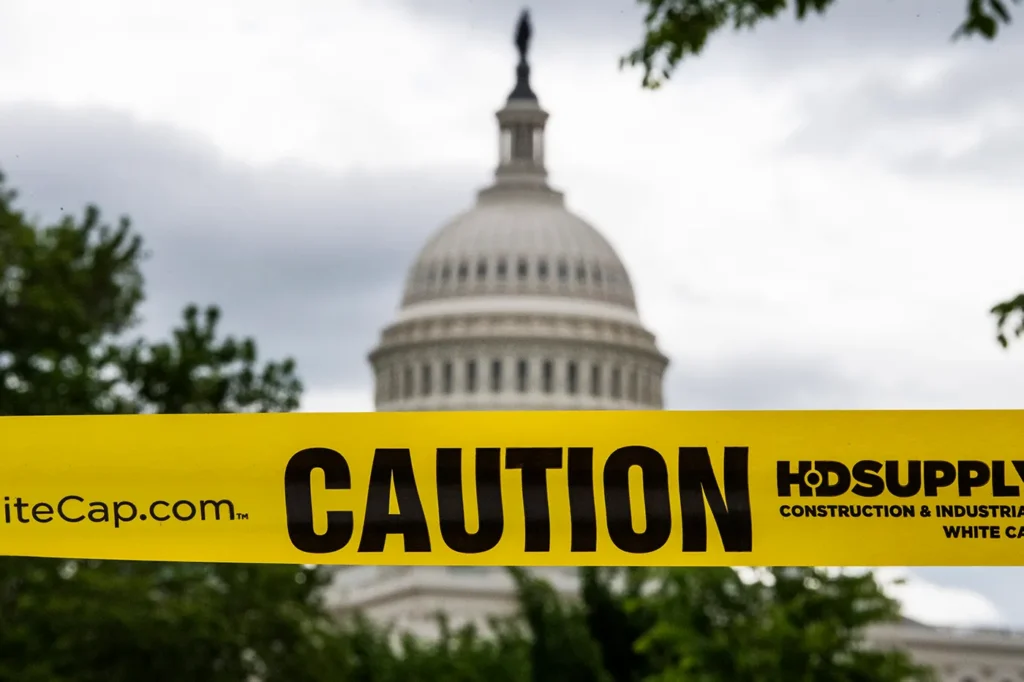Appeals court reinstates FTC Commissioner Rebecca Kelly Slaughter after Trump’s controversial firing. Legal battle highlights federal agency independence rules.
Table of Contents
FTC Commissioner Wins Appeal: Trump Firing Ruled Illegal by Court
Federal Appeals Court Delivers Major Blow to Trump Administration’s Agency Reform Efforts
The ongoing legal battle between the Trump administration and federal regulatory agencies took a dramatic turn this week when a federal appeals court ruled in favor of Rebecca Kelly Slaughter, the Federal Trade Commission commissioner who was controversially fired by President Trump in March.
Key Developments in the FTC Legal Battle
| Date | Event | Outcome |
|---|---|---|
| March 2025 | Trump fires Slaughter & Bedoya | Both commissioners file lawsuits |
| July 21, 2025 | District court orders reinstatement | Justice Department appeals |
| Tuesday | Appeals court 2-1 decision | Stay dissolved, Slaughter reinstated |
Understanding the Constitutional Crisis

The appeals court’s 2-1 decision represents more than just a personnel dispute—it’s a fundamental question about the balance of power between the executive branch and independent federal agencies. The court’s ruling heavily relied on 1935 Supreme Court precedent that specifically protects FTC leaders from presidential “at will” termination.
What This Means for Federal Agency Independence
The Federal Trade Commission operates as an independent regulatory agency, designed to function without direct presidential interference. This structure ensures that consumer protection and antitrust enforcement remain consistent across different administrations.
Key Constitutional Protections:
- Fixed Terms: Commissioners serve specific terms regardless of presidential changes
- Bipartisan Structure: Maximum 3 commissioners from same political party
- Cause-Based Removal: Presidents cannot fire commissioners without specific legal cause
The Broader Impact on Government Watchdogs
This ruling comes amid the Trump administration’s broader efforts to restructure federal oversight agencies. The timeline shows a pattern of attempted reforms:
Timeline of Trump’s Agency Reform Efforts
March 2025:
├── FTC Commissioner Firings (Slaughter, Bedoya)
├── Consumer Financial Protection Bureau Operations Limited
└── Federal Reserve Independence Challenges Reported
July 2025:
├── District Court Orders Slaughter Reinstatement
└── Justice Department Emergency Stay Filed
September 2025:
├── Appeals Court Dissolves Stay (2-1 Decision)
└── Trump Administration Appeal Acceleration Denied
Legal Precedent and Supreme Court History
The appeals court’s decision wasn’t made in isolation. It draws heavily from established Supreme Court precedent, particularly the 1935 ruling that created the framework for independent agency protection.
Comparing Presidential Removal Powers

| Agency Type | Removal Authority | Legal Basis |
|---|---|---|
| Cabinet Members | At-will removal | Executive privilege |
| Independent Agencies | Cause-based only | Supreme Court precedent |
| Federal Reserve | Protected tenure | Federal Reserve Act |
| FTC Commissioners | Statutory protection | FTC Act + Court precedent |
Rebecca Kelly Slaughter’s Role and Significance
As an FTC commissioner, Slaughter played a crucial role in several high-profile antitrust cases during the Biden administration, including:
- Microsoft-Activision Blizzard merger review
- Kroger-Albertsons acquisition investigation
- Consumer protection enforcement initiatives
Her reinstatement ensures continuity in these ongoing regulatory matters and maintains the FTC’s bipartisan balance required by law.
The White House Response and Future Appeals
The Trump administration’s response through spokesperson Kush Desai indicates they plan to continue fighting this decision, citing two previous Supreme Court cases where Trump successfully removed agency heads. However, legal experts note that those cases involved different types of agencies with less constitutional protection than the FTC.
Potential Outcomes Moving Forward
- Supreme Court Appeal: Trump administration may petition for higher court review
- Legislative Action: Congress could be asked to modify FTC structure
- Status Quo: Current ruling stands, maintaining agency independence
Impact on Consumer Protection and Market Regulation

The FTC’s restored full commission has immediate implications for several ongoing cases and policy initiatives:
Active FTC Investigations and Cases
- Big Tech Antitrust: Ongoing investigations into major technology companies
- Healthcare Mergers: Review of pharmaceutical and hospital consolidations
- Consumer Privacy: Data protection and privacy rule enforcement
- Financial Services: Oversight of fintech and banking practices
Public Interest and Democratic Accountability
Commissioner Slaughter’s statement highlights the core issue at stake: “Because I have a voice. And he is afraid of what I’ll tell the American people.” This reflects the broader principle that independent agencies serve public interest rather than partisan political goals.
Why Agency Independence Matters
Consumer Protection Benefits:
- Consistent enforcement across administrations
- Reduced political interference in market regulation
- Maintained expertise and institutional knowledge
- Balanced approach to business oversight
Looking Ahead: Implications for Federal Governance
This ruling sets an important precedent for other independent agencies facing similar challenges. The Consumer Financial Protection Bureau, Federal Reserve, and other regulatory bodies will likely view this as a protective precedent for their own independence.
Key Takeaways for Stakeholders
For Businesses: Regulatory uncertainty decreases with restored agency stability For Consumers: Protection mechanisms remain intact and enforceable
For Legal Community: Constitutional precedent for agency independence strengthened For Political System: Checks and balances between branches maintained
Conclusion: A Win for Constitutional Governance
The appeals court ruling represents more than just a personnel decision—it’s a reaffirmation of the constitutional principles that ensure federal agencies can serve the public interest without undue political interference. As Commissioner Slaughter prepares to return to her duties, the broader implications of this case will likely influence federal governance discussions for years to come.
The legal battle also demonstrates the robustness of America’s institutional safeguards, even during periods of significant political tension. Whether this ruling survives potential Supreme Court review remains to be seen, but for now, it stands as a significant victory for those advocating for independent federal agency operations.

